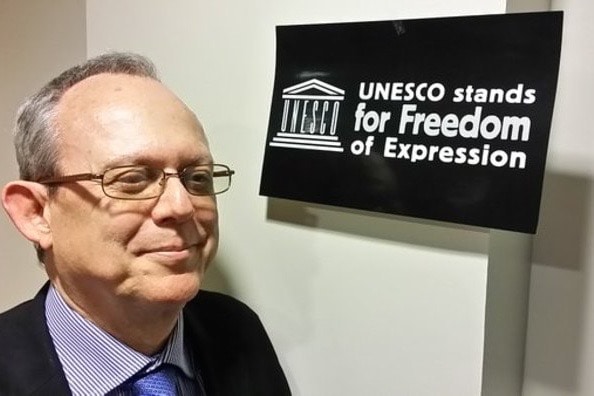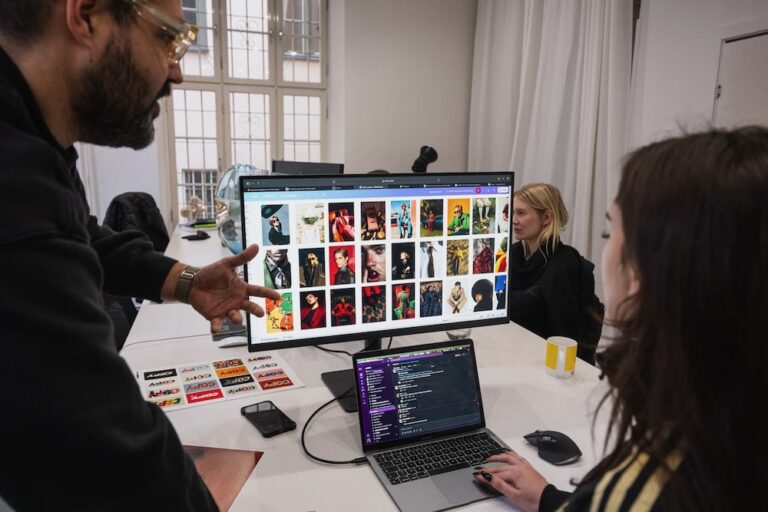IFEX takes a look at Frank La Rue's lifetime quest to bring human rights abusers to justice.
[The] Internet has to be seen as the Plaza Pública, the public square, the public space, where we all meet, relate, socialize, exchange views and communicate.
From his early years as a Guatemalan lawyer working to bring charges of genocide against his country’s military leaders, through his mandate as United Nations Special Rapporteur on the promotion and protection of the right to freedom of opinion and expression, and in his current position as Assistant General for Communications and Information at UNESCO, Frank La Rue has been a constant, courageous, and powerful voice in support of the disempowered and in the quest to bring human rights abusers to justice.
Born in El Salvador, La Rue studied law at the Universidad de San Carlos de Guatemala, where he graduated in 1975. He later studied Foreign Policy at John Hopkins University and Human Rights and the Inter American System at the Washington College of Law.
Early in his career La Rue was a legal advisor for the National Workers Central Union in Guatemala (CNT), which was the largest workers’ union in the country in the 1970s. During his time there, union activists risked persecution and worse by paramilitary organisations, and in 1980 the CNT headquarters were raided by the military and 27 union leaders were abducted and disappeared.
The danger that La Rue faced in his work with the CNT forced him into exile in the USA, where he lived and worked in Washington DC. While there, La Rue worked for the Commission on US-Latin American Relations and founded the Centro para la Acción Legal en Derechos Humanos (CALDH), a centre for legal action on human rights, specifically for the defending the rights of indigenous communities in Guatemala.
In 1993, La Rue moved back to Guatemala, continuing his work with CALDH, and in 2000 he received a nomination for the Nobel Peace Prize for helping bring the first case of genocide against Guatemalan military leaders. In 2001 CALDH also brought charges against General Rios Montt, who, as sole leader in 1982 and 1983 had unleashed a campaign against the country’s Maya populations and reportedly resulted in the destruction of 600 Maya villages. The risks CALDH took on in order to do this work included death threats, robberies and abductions. In 2013 the case against Guatemalan military leaders was finally brought to trial.
From 2002 to 2008 La Rue was the Presidential Secretary for Human Rights under the administration of President Oscar Berger. His impact was highly impressive; he resolved 90% of the cases involving Guatemala in the Inter-American system that had been left pending under previous governments’ policies of denying past human rights abuses.
In the early 2000s he also took on the role of President of the Governing Board of DEMOS, a Guatemalan NGO that works with youth, women and indigenous populations.
In 2008 La Rue was appointed as the UN Special Rapporteur on the promotion and protection of the right to freedom of opinion and expression, and held the post for two terms. In an interview for IFEX at the end of his second term, La Rue noted the discussions on defamation of religion that dominated the early years of his mandate, and spoke about some of the new initiatives he launched, such as regional consultations with State experts, academics and civil society organisations.
Each year of his mandate La Rue submitted an annual report on themes of freedom of expression to the UN Human Rights Council and to the General Assembly. Perhaps one of the most timely reports he wrote, on the topic of State surveillance and its impact on human rights, was submitted to the Office of the United Nations High Commissioner for Human Rights just days before information from whistleblower Edward Snowden on the NSA’s warrantless surveillance programme was made public in June 2013.
Since leaving the UN post in the summer of 2014, La Rue has continued to influence the global conversation on freedom of expression, serving on the International Board of Trustees of ARTICLE 19, speaking at numerous universities and publishing articles on human rights as part of his work for Robert F. Kennedy Human Rights.
In March 2016 he was appointed to his latest role as UNESCO’s Assistant Director-General for Communication and Information, a sector of UNESCO that was established in 1990 to work on issues of freedom of expression and media development and hosts the secretariats for intergovernmental programmes on development of communication and access to information.
In an interview while in Singapore for a conference on freedom of expression, La Rue stressed the importance of teaching younger generations about their right to express themselves, saying: “We have to teach our children how to think from an early age, how to express their own values and to have their own opinions and to make their own decisions. And the sooner we begin, the better they will do it.”
Whether as a rights activist, a lawyer, a writer, a facilitator, or a teacher, La Rue continues to empower and fight for the rights of others, in the name of justice.



